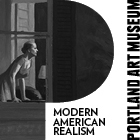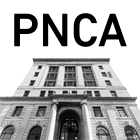
|
||
|
Portland art blog + news + exhibition reviews + galleries + contemporary northwest art
|
||
A cursory arts journalism/criticism discussion Two prominent bloggers, Edward Winkleman and Tyler Green discuss the changing nature of visual art journalism in this worthwhile read. They are also fellow alumni of the 2007 Art in America roundtable on the changing face of digital arts writing.
I agree with Tyler most on one particular part, so much of what is written has become art market reportage and I've noticed that in general Americans have become even less interested in critical thinking than they were in the 80's (which weren't exactly the 40's-60's). Visual art writing has become mostly a brochure for art as product (a restatement of the artist's intent and an expository traveler's report) because that is what the art dealers and auction houses want. Perhaps that is why I've always taken a more British/argumentative approach of probing or testing assumptions and trying to compare the intent vs. outcomes, while expanding the frame of the discussion. I did get my start writing for Modern Painters magazine when it was London based and arguably the best art magazine of the 90's till the early aughts. Later it was sold and moved to NYC. In short, I simply don't write ad copy that masquerades as a critical review and I push PORT's other writers to do the same (even for announcements we prefer a little critical edge). Overall, the discussion of the market creates a bubble-like complacency that I find disturbing and it resembles the way movie reviews of Hollywood films are more about the box office rather then the mechanics of the art form. One personal quirk, I dislike the term journalism intensely and I come from the older Herodotus/Baudelaire/Matthew Collings style of first person observational critic. Criticism is is inherently Socratic and journalism became debased a long time ago (always beholden to the newspaper magnates like Hearst, big media etc) and in some ways is at odds with criticism because it emphasizes reportage over far more explosive/fruitful intellectual scuffles where both sides refine their positions. Good arts journalism was and is still possible of course but there is a difficult line to walk between journalist and critic, one that has been made more difficult by the disappearance of staff critics at our slowly disappearing newspapers and magazines. Is there an audience? Yes, PORT has over 1.3 million unique readers per year and I do find that the better artists, curators and museum directors relish criticism because even if they don't agree with a critique it presents an independent perspective into a more cosmopolitan/faceted worldview that doesn't parrot their own PR agenda. Academia and "community" based forms are generally more about flattery because they are generally what I call, "careers of consensus." That is also a problem with social media, it tends to exclude that which is unbidden and reduces things to likes (or the absence of likes) and the finer points of debate become reduced to reindeer games based more on personal affiliation than harder won comparative arguments. In short there is a constant feedback bubble in market, academia and social based approaches that true criticism is purposefully designed to pop. Compared to that solipsism criticism can seem harsh and many mistake it for being personal (always wondering about the critic's motivations, and it doesn't help that many critics are very unhappy/solitary sorts... FYI I'm quite the opposite). Overall, a good critic always LOVES what they critique and they probe their fascination with the idea that doing so raises the bar for everyone. Socrates famously said that, "The unexamined life is not worth living," and most true critics live that way. They never fetish form over content and content deepens by being tested, not merely applauded. There is much more to this discussion and I hope to finish a deeply probing essay on the subject of art criticism soon (this was just a little polish up). No criticism isn't dead, Yelp, Gordon Ramsay etc. do indicate it has some new and rather popular forms have arisen. Still, a true critic develops and wields authority through knowledge and experience and not much else. A journalist is given that authority by virtue of being hired by an institution that hires journalists, sadly such organs of discussion have largely passed. Posted by Jeff Jahn on July 09, 2013 at 10:44 | Comments (0) Comments Post a comment Thanks for signing in, . Now you can comment. (sign out)
(If you haven't left a comment here before, you may need to be approved by
the site owner before your comment will appear. Until then, it won't appear
on the entry. Thanks for waiting.)
|
| s p o n s o r s |
 |
 |
 |
 |
 |
 |
 |
 |
 |
 |
 |
 |
 |
 |
 |
 |

|
Site Design: Jennifer Armbrust | • | Site Development: Philippe Blanc & Katherine Bovee | |

